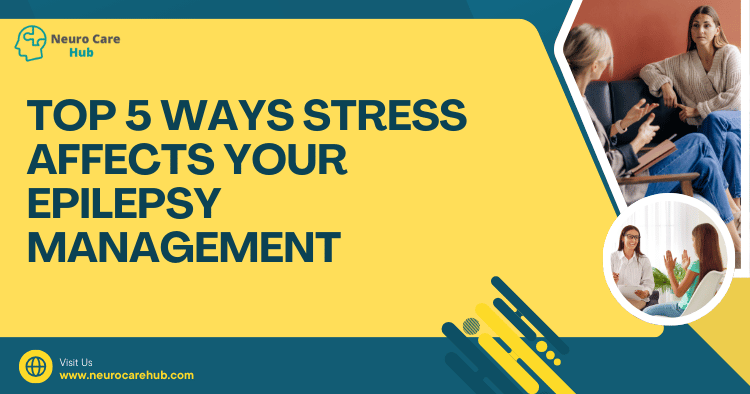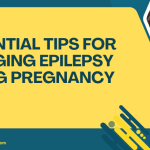Table of Contents
- Understanding Stress and Epilepsy
- Increased Seizure Frequency
- Impact on Medication Compliance
- Effects on Mental Health
- Lifestyle Choices and Triggers
- Conclusion
Understanding Stress and Epilepsy
Stress is an inevitable aspect of modern life, and its impact on individuals with epilepsy can be profound. When exposed to stress, the body triggers a ‘fight or flight’ response, releasing hormones such as cortisol and adrenaline. While these hormones play a critical role in responding to immediate threats, they can also contribute to several challenges for those living with epilepsy.
It’s essential to recognize that managing stress isn’t just about feeling better; it’s a key component of effective epilepsy management.
The relationship between stress and epilepsy is well-documented, emphasizing the importance of managing stress to maintain seizure control and overall health. According to recent findings from the Epilepsy Foundation, effective stress management is crucial for individuals dealing with this condition.
Increased Seizure Frequency
One of the most critical ways that stress can influence epilepsy is by increasing the frequency of seizures. Stress can act as a seizure trigger for many individuals, making it vital to implement effective stress management techniques.
How Stress Triggers Seizures
- Physiological Response: Stress activates the sympathetic nervous system, which can lead to alterations in brain activity.
- Hormonal Fluctuations: Elevated cortisol levels can destabilize the brain’s electrical activity, raising the likelihood of seizures.
Managing Stress to Reduce Seizures
To mitigate the effects of stress on seizure frequency, consider these strategies:
| Strategy | Description |
|---|---|
| Mindfulness | Engage in mindfulness meditation for relaxation. |
| Regular Exercise | Participate in physical activity for endorphin release. |
| Sleep Hygiene | Prioritize quality sleep to support overall health. |
Remember, even small changes in your daily routine can lead to significant improvements in managing stress and epilepsy.
For additional stress management resources, check out Stress Management Techniques.
Impact on Medication Compliance
Stress can significantly hinder adherence to medication regimens. When overwhelmed, individuals may forget doses or even discontinue their medications, which can lead to increased seizure activity.
Why Medication Compliance is Crucial
- Seizure Control: Consistent medication use is essential for maintaining stable blood levels of anti-seizure medications, which helps to reduce the likelihood of seizures.
- Avoiding Complications: Inconsistent medication can lead to complications, including status epilepticus, a medical emergency.
Tips for Staying on Track
- Set Reminders: Use alarms or medication management apps to remind you when to take your medication.
- Create a Routine: Incorporate medication into your daily schedule to establish a habit.
- Communicate with Your Healthcare Provider: Discuss any challenges you encounter regarding medication adherence.
Staying organized and proactive about your medication can make all the difference in your health journey.
For more insights on medication compliance, visit Epilepsy and Medication.
Effects on Mental Health
The connection between stress and mental health is well-established, and for individuals with epilepsy, the ramifications can be significant. Stress can exacerbate anxiety and depression, both of which can contribute to seizure activity.
The Mental Health-Epilepsy Link
- Anxiety Disorders: Elevated stress levels can trigger anxiety, which may lead to more frequent seizures in some individuals.
- Depression: Coping with a chronic condition like epilepsy can lead to feelings of hopelessness and sadness, complicating seizure management.
Strategies for Mental Well-being
- Therapy: Consider engaging with a mental health professional to address anxiety or depression.
- Support Groups: Joining a support group can provide a sense of community and shared experience.
Connecting with others who understand your experiences can be a powerful source of support and healing.
For additional mental health resources related to epilepsy, refer to the National Institute of Mental Health.
Lifestyle Choices and Triggers
Stress can lead to poor lifestyle choices that may act as triggers for seizures. When under stress, individuals might resort to unhealthy coping mechanisms, such as poor diet, lack of exercise, or substance use.
Identifying Stress-Induced Triggers
Common lifestyle factors influenced by stress include:
| Factor | Impact on Seizures |
|---|---|
| Diet | Unhealthy eating can lead to nutrient deficiencies. |
| Sleep | Poor sleep can increase seizure susceptibility. |
| Alcohol and Drugs | Substance use can lower the seizure threshold. |
Improving Lifestyle Choices
- Balanced Diet: Focus on a variety of fruits, vegetables, lean proteins, and whole grains.
- Regular Exercise: Aim for at least 30 minutes of physical activity most days of the week.
- Limit Alcohol: If you consume alcohol, do so in moderation, and be aware of its potential effects on your epilepsy.
Making conscious lifestyle choices can empower you to take control of your health and reduce stress-related triggers.
For more information on lifestyle choices affecting epilepsy, visit Living Well with Epilepsy.
Conclusion
Managing stress is crucial for individuals living with epilepsy. By understanding how stress impacts your condition, you can take proactive steps to reduce its effects on seizure frequency, medication compliance, mental health, and lifestyle choices. Make stress management a priority, and don’t hesitate to reach out for support from healthcare professionals, friends, and family.
Remember, seeking help is a sign of strength. You’re not alone on this journey!
If you have more questions about stress and epilepsy management or need support, consider visiting the Epilepsy Foundation or contacting a healthcare provider.
Also look for: For additional insights into the intersection of neurological health and stress management, check out Top 5 Myths About Neuro Care Debunked and Top 5 Ways to Integrate Neuro Care into Your Wellness Routine.






